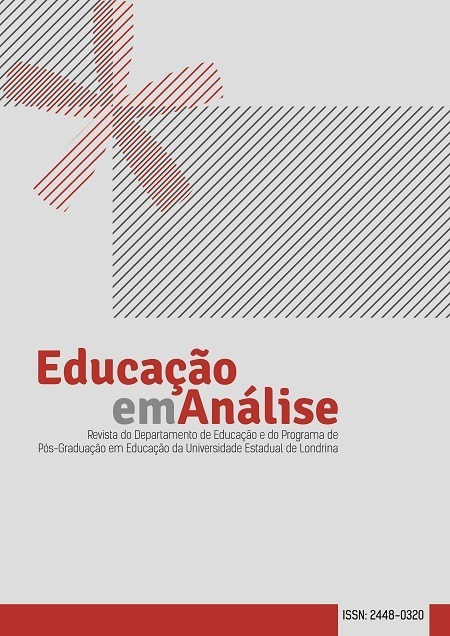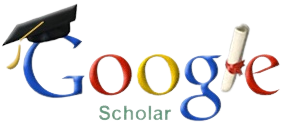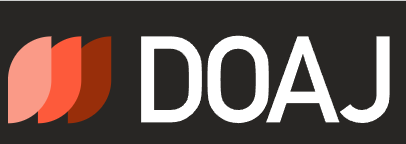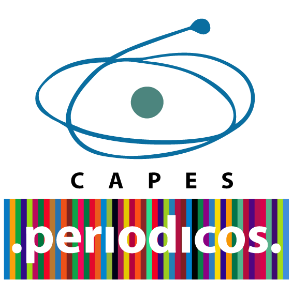Contributions and challenges of learning in microlearning in a social institution in Porto Velho - Rondônia
DOI:
https://doi.org/10.5433/1984-7939.2023v8n1p152Keywords:
Andragogy; In-company training; Multimedia teaching; Educational technologyAbstract
Nowadays, companies that invest in corporate education are adopting strategies that value the human and intellectual growth of each employee, aiming for changes in organizational culture and training. With the Coronavirus Pandemic, companies have chosen technological solutions to continue the training of their employees. At Sesc Rondônia, in particular, strategies have been adopted that favor the use of different languages, including visual, symbolic, and graphic, in learning, mediated by technology. Among them, the microlearning technique stands out as a dynamic, easily accessible, and differentiated learning proposal for discussing specific topics that involve applied knowledge experiences, combined with the company's strategies and objectives. This article aims to discuss the contributions and challenges of learning in microlearning adopted in corporate education at Sesc Rondônia. It is part of broader research with a qualitative and quantitative approach on the subject. The results of a questionnaire with 27 participants were analyzed to assess the level of agreement/disagreement regarding their experiences during the strategic planning course, which was entirely conducted in remote format and in the microlearning modality in the pandemic period. The results show positive aspects such as flexibility of schedules and resources, however, negative points such as lack of interaction between participants and dispersion between one activity and another should be considered.
Downloads
References
ALVES, Lynn. Educação remota: entre a ilusão e a realidade. Interfaces Científicas: educação, Aracaju, v. 8, n. 3, p. 348-365, jun. 2020.
AZEVEDO, Wilson. Panorama Atualizado da educação a distância no Brasil. In: BOLEIM de Educação a Distância. Brasília: Ministério da Educação: Secretaria de Educação a Distância, 2002.
BUCHEM, Ilona; HAMELMANN, Henrike. Microlearning: a strategy for ongoing professional development. eLearning Papers, [Londres], n. 21, p. 1-15, 2010.
FARIAS, Quitéria Larissa Teodoro; ROCHA, Sibele Pontes; CAVALCANTE, Ana Suelen Pedroza; DINIZ, Jamylle Lucas; PONTE NETO, Osmar Arruda de; VASCONCELOS, Maristela Inês Osawa. Implicações das tecnologias de informação e comunicação no processo de educação permanente em saúde. Revista Eletrônica de Comunicação, Informação e Inovação em Saúde, Rio de Janeiro, v. 11, n. 4, p. 1-11, 2017. Disponível em: https://www.arca.fiocruz.br/bitstream/handle/icict/24033/13.pdf. Acesso em: 22 mar. 2023.
GABRIELLI, Silvia; KIMANI, Stephen; CATARCI, Tiziana. The design of microlearning experiences: a research agenda. In: HUG, Theo; LINDNER, Manfred; BRUCK, Peter A. (ed.). Microlearning: emerging concepts, practices and technologies after e-learning: proceedings of Microlearning Conference. 2005: learning & working in new media. Innsbruck: Innsbruck University Press, 2006. p. 45-53.
GARCIA, Rosalba Maria Cardoso. Política de educação especial na perspectiva inclusiva e formação docente no Brasil. Revista Brasileira de Educação, Rio de Janeiro, v. 18, n. 52, p. 101-119, 2014.
HERMÓGENES, Lucas Ramon; SANTOS, Marcos; NASCIMENTO, Priscila Fernandes; TEIXEIRA, Luiz Frederico. A importância das digital skills em tempos de crise: alguns aplicativos utilizados durante o isolamento social devido à pandemia do Covid-19. Revista Augustus, Rio de Janeiro, v. 25, n. 51, p. 198-218, 2020.
HIRATA, Helena. Da polarização das qualificações ao modelo da competência. São Paulo, 1994.
HUG, Theo. Micro learning and narration: exploring possibilities of utilization of narrations and storytelling for the designing of "micro units" and didactical micro-learning arrangements. In: fourth Media in Transition conference. 2005. Disponível em: http://web.mit.edu/comm-forum/legacy/mit4/papers/hug.pdf. Acesso em: 18 mar. 2023.
KENSKI, Vani Moreira. A urgência de propostas inovadoras para a formação de professores para todos os níveis de ensino. Revista Diálogo Educacional, Curitiba, v. 15, n. 45, p. 423-441, 2015.
KNECHTEL, Maria do Rosário. Metodologia da pesquisa em educação: uma abordagem teórico-prática dialogada. Curitiba: Intersaberes, 2014.
KNOWLES, Malcolm S. The modern practice of adult education: andragogy versus pedagogy. New York: Association Press, 1970.
KRAEMER, Maria Elisabeth Pereira. Universidade corporativa como alavanca da vantagem competitive. De Gerencia.com, [s. l.], 24 nov. 2004. Disponível em: http://www.degerencia.com/articulo/universidade_corporativa_como_alavanca_da_vantagem_competitiva. Acesso em: maio 2022.
LARAIA, Roque de Barros. Cultura: um conceito antropológico. Rio de Janeiro: [Jorge Zahar], 2002.
MEISTER, Jeanne. Educação corporativa. São Paulo: Makron Books, 1999.
PIMENTA, Marcelo. Microlearning e educação pelo whatsapp. 2018. Disponível em: https://marcelo.pimenta.com.br/microlearning-e-educacao-pelo-whatsapp-conheca-solucoes-para-aprender-se-forma-rapida-e-simples/. Acesso em: 22 mar. 2023.
QUEIROGA, Fabiana. O trabalho e as medidas de contenção da COVID-19: contribuições da psicologia organizacional e do trabalho no contexto da pandemia. Porto Alegre: Artmed, 2020.
SCHLEMMER, Eliane; SACCOL, Amarolinda Zanela; BARBOSA, Jorge; REINHARD, Nicolau. M-Learning ou aprendizagem com mobilidade: casos no contexto brasileiro. In: CONGRESSO INTERNACIONAL DE EDUCAÇÃO A DISTÂNCIA, 13., Curitiba. Anais […]. Curitiba: ABED, 2007. p. 1-12.
SCHMIDT, Andreas. Microlearning and the knowledge maturing process: towards conceptual foundations for work-integrated microlearning support. [S. l.: s. n.], 2007.
SILVA, Sergio Luis da. Informação e competitividade: a contextualização da gestão do conhecimento nos processos organizacionais. Ciência da Informação, Brasília, v. 31, n. 2, p. 142-151, maio/ago. 2002.
SOUZA, Marcia Izabel Fugisawa; AMARAL, Sérgio Ferreira do. Modelo de produção de microconteúdo para aprendizagem com mobilidade. [Campinas: Lantec], 2014. Disponível em https://www.lantec.fe.unicamp.br/pf-lantec/n2.art4_.pdf. Acesso em: 1 jul. 2018.
Downloads
Published
How to Cite
Issue
Section
License
Copyright (c) 2023 Laura Sousa Pinto, Adriana Gomes Alves, Regina Célia Linhares Hostins

This work is licensed under a Creative Commons Attribution-NonCommercial 4.0 International License.
Os artigos publicados na Revista Educação em Análise estão sob a Licença Creative Commons Atribuição 4.0 Internacional, garantindo Acesso Aberto. Deste modo, os autores mantêm os direitos autorais de seus trabalhos e, em caso de republicação, solicita-se que indiquem a primeira publicação nesta revista. Essa licença permite que qualquer pessoa leia, baixe, copie e compartilhe o conteúdo, desde que a devida citação seja feita. Além disso, autoriza a redistribuição, adaptação e criação de obras derivadas em qualquer formato ou meio, incluindo uso comercial, desde que a atribuição à revista seja mantida.
A revista se reserva o direito de efetuar, nos originais, alterações de ordem normativa, ortográfica e gramatical, com vistas a manter o padrão culto da língua e a credibilidade do veículo. Respeitará, no entanto, o estilo de escrever dos autores. Alterações, correções ou sugestões de ordem conceitual serão encaminhadas aos autores, quando necessário.
As opiniões emitidas pelos autores dos artigos são de sua exclusiva responsabilidade.
























